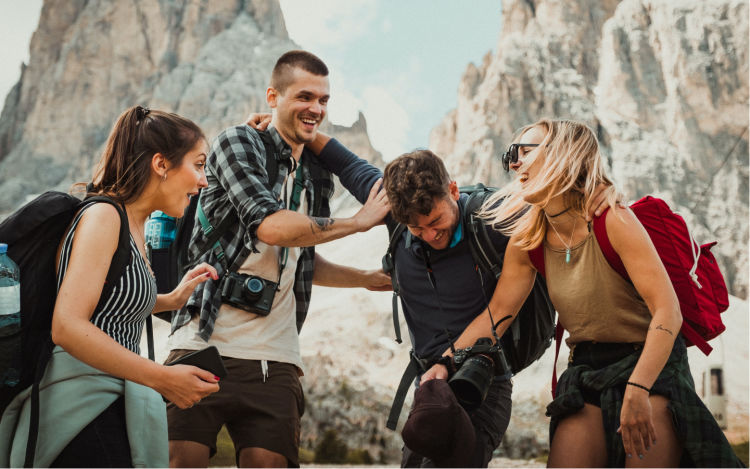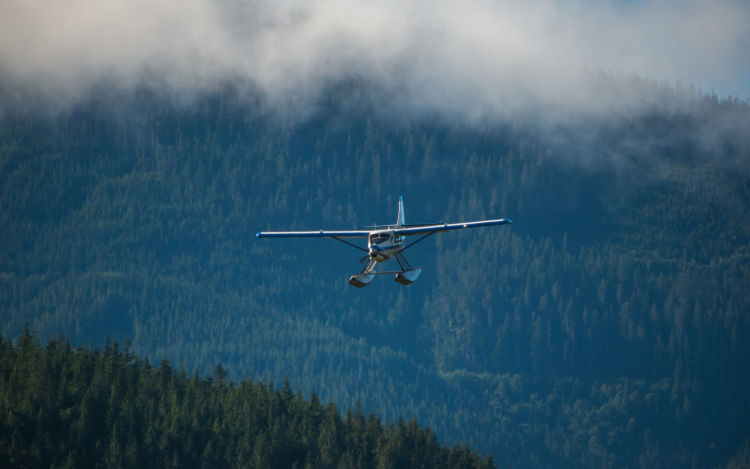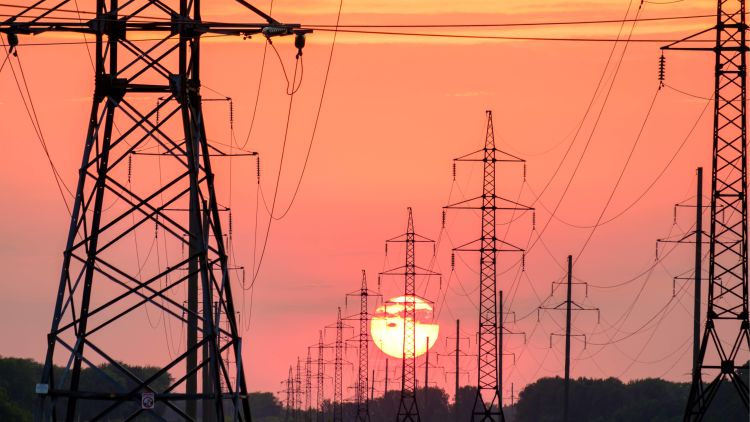How to Practice Ecotourism When Travelling
by ecobee on 08/18/2022 in Better Planet
6 min read

As pandemic-related restrictions loosen around the world, many people are returning to travel. But for folks trying to make ecologically friendly choices, big trips can feel at odds with their greener lifestyles. The key to more sustainable travel can be found in ecotourism. First introduced in the 1970s, ecotourism is responsible traveling to natural areas with the goals of improving the well-being of the local people, conserving the environment, and educating yourself on the nature, community, and culture of the location you visit.
Over the last decade, ecotourism has been a growing trend with travelers conscious of climate change and the impacts of human activity on local ecosystems. According to Statista, the estimated global market for ecotourism is forecasted to reach $333.8 billion USD by 2027, an 85% increase from 2019. If you want to participate in ecotourism for your next vacation, understanding the potential impacts and best practices will set you off in the right direction.
How to practice ecotourism.
According to The International Ecotourism Society (IES), you should aim to adopt the following practices into your travel plans:
- Adhere to low impact activities and minimize your footprint by curtailing physical, social, behavioural, and psychological effects.
- Foster environmental and cultural awareness as well as respect.
- Support local conservation efforts financially or through increased awareness.
- Acknowledge the rights and spiritual beliefs of the Indigenous People inhabiting the land.
- Work in partnership with the community to build empowerment.

What are the benefits of ecotourism?
Beyond the stunning scenery and enchanting sounds of the natural world arounds us lies an immersive experience that is making ecotourism popular among travelers. The positive impacts of practicing and promoting ecotourism stem from its key principles. The International Ecotourism Society defines the principals as follows:
- Education of ecosystems
Understanding your host country’s ecosystems can create a greater appreciation for its natural beauty and local wildlife. It’s rewarding to witness the impact of local conservation efforts in preserving nature.
- Environmental awareness and preservation
Learning about conservation efforts is a useful takeaway for ecotourists. You could share the info with peers and apply the knowledge in your daily life.
- Cultural appreciation and preservation
Exploring and understanding the local language, art, history, and cuisine of the host country will help us connect and reduce cultural ignorance. It can create a direct connection between the ecotourist and the citizen.
- Stimulating economic growth
According to the Food and Agriculture Organization of the United Nations, regular tourism returns just 20% of earnings back to local communities. The rest is absorbed by hotels, airlines, and large tourist agencies. Locally driven ecotourism, on the other hand, can return as much as 95% of earnings back to the local community. That helps to alleviate poverty and unemployment through sustainable means.
- Supporting local conservation efforts
On top of stimulating economic growth, ecotourism empowers the local community to preserve its biodiversity and ecosystems. Local tours may donate a portion of their profits to finance conservation efforts such as reforestation and repopulation of endangered species.

How to responsibly participate in ecotourism.
When planning your ecotourism vacation, it’s important to be aware of potential downsides and the ways to mitigate those risks for local communities.
Risk to Indigenous traditions
In many regions, an increasing number of tourists can apply pressure on the culture, traditions, and ceremonies of Indigenous Peoples. The Indigenous Peoples of these traditional territories may experience objectification from tours taking place with stereotypical representation of their communities.
Mitigations and tips:
- Conduct your own research about the traditional territories you are visiting in advance of your trip. Native Land is a helpful tool for identifying the territories, languages, and treaties of where we reside, work, and visit.
- Ensure any tours and accommodations formally acknowledge the land and actively work with the Indigenous Communities of the territories to welcome and educate tourists.
Displacement of locals
With a boost in economic growth, sometimes communities are at risk of being displaced to pave way for hotels and tourists. For example, in East Africa approximately 70% of national parks are occupying land that was forcefully taken from the Maasai Tribe.
Mitigations and tips:
- Research your tours and accomodations and make sure that their goals and impact are in line with the larger practices of ecotourism.
Emissions from traveling
To visit many places, long distance air travel is required. According to Transport & Environment, if unmitigated, carbon emissions and vapor trails from aviation are estimated to double by 2050. Increasing travel by car and boats for transportation could also disrupt local environments and cause pollution.
Mitigations and tips:
- Consider travelling to a destination close to you and reachable by car, bus or train.
- If flying is your only option, consider a nonstop flight. Although it may be more expensive, it consumes less fuel than flights with layovers. You can also opt-in to carbon offsetting when purchasing your ticket with travel agencies such as Skyscanner and Hopper. Your financial contribution would balance out the impact of your flight’s emissions and directly support carbon-reducing initiatives including reforestation and adoption of renewable energy generation.
- While travelling locally, consider opting for public transportation or rental bikes.
- If you are interested in witnessing wildlife while reducing your carbon footprint, some guided ecotours are safely conducted via horse-back riding or other native animals rather than vehicles.
- You can also curb emissions from your home while you are away. With an ecobee Smart Thermostat and Room Sensor for occupancy detection, you can manage your home’s energy consumption even on vacation. By enabling the built-in Smart Home and Away feature, your thermostat will be able to detect when you are away and will automatically maximize energy savings. Alternatively, you can set a Vacation schedule so that your thermostat knows when you will be away and can keep the temperature much warmer or cooler than if you were at home.
Degradation of ecosystem
Although ecotourism is designed to alleviate environmental degradation, it can sometimes have adverse effects. Ecotourism primarily takes tourists to relatively untouched ecosystems for an immersive and educational experience. These ecosystems can sometimes be delicate. Increased foot traffic can lead to soil erosion, scaring off wildlife and disrupting the food chain, or higher demand for natural resources.
Mitigations and tips:
- Conduct research into your ecotour organization and ensure it abides by the key principles of ecotourism. With the organization you choose, adhere to the regulations enforced throughout the tour such as staying on the marked path with your group, not littering, and taking nothing from the habitat with you (e.g., rocks, shells, soils, plants).
- Research about the local wildlife to be mindful of the possible threats imposed by human presence.
- Conserve water and energy where possible by consuming only what you need. Store your food in plastic-free containers and pack a reusable water bottle with a built-in purifier to reduce plastic usage.
Becoming an ecotourist means participating in an immersive experience and enjoying the natural beauty of the world around us. By conducting research and grounding your decisions in the key principles of ecotourism, you will embark on a lighter foot and leave behind a reduced print wherever you go.
Did you enjoy this article?
Thanks for letting us know!






